
Winstep Forward (WSF) is a U.S. based non-profit that was founded by Dr. Ansari to facilitate student scientific exchange, promote S&T collaborations, and facilitate experiential learning and enable curiosity based career choices. Leveraging vast online content, WSF is currently working on creating Virtual Education Networks to enable world-class learning at a national scale, independent of local and fiscal constraints.
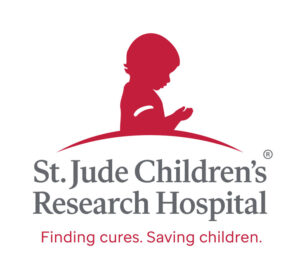
From its inception in 1962, St. Jude has been dedicated to bringing together patient care and research with the bold goal of curing childhood cancer. This world class clinical and scientific research institution is also highly committed to education, training, and outreach activities. The institution has invested in training clinicians and basic science investigators, including the St. Jude Graduate School (SJGS) with 135 faculty members and instructors. Support and administration of educational programs are coordinated by the Clinical Training and Education Office (CETO), Academic Programs Office (APO), and the SJGS. CETO helps train talented clinical fellows while the APO is a resource for scientific training and professional development for 290 postdoctoral trainees (62% non-US fellows). APO also offers programs and grant writing workshops for clinical researchers. St. Jude’s recognition for and commitment to research education and training is also evidenced by the number of NIH-funded institutional awards, three of which support training in cancer research, and one of which supports training in communicable diseases research.
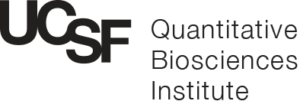
The University of California San Francisco, is consistently ranked among the top 5 medical school in the U.S.Given the expanse of the research enterprise at UCSF, QBI serves a critical purpose by encouraging scientists from widely ranging scientific disciplines, backgrounds and styles to collaborate. Consequently, some of the world’s most recognizable and impactful scientists, including Nobel laureate Dr. Jennifer Doudna, are among the 112 QBI faculty. The driving goal at QBI is to help make precision medicine a reality by using quantitative research tools to understand the underlying biology behind different disease states, and then to use that knowledge to develop novel therapies and put them into the hands of clinicians. To achieve this goal, armed with a $35M annual budget, QBI focused on infectious diseases, including those caused by HIV, Dengue and now SARS-CoV2 viruses as well as oncology, psychiatric disorders. QBI incorporated HIV-ARC (HARC) center and established several Cell Mapping Initiatives, including the Host-Pathogen Map Initiative (HPMI), the Cancer Cell Map Initiative (CCMI), and the Psychiatric Cell Map Initiative (PCMI), to study these diseases and disorders in a collaborative framework using unbiased, multi-disciplinary and quantitative approaches.
QBI also organizes focused workshops that provide a fast and intense learning space with qualified individuals leading the knowledge sharing. These have been highly effective in transferring skills in short quanta. QBI offered 24 tutorials and workshops between 2016 and 2020. Over this period, there was a 40% increase in the share of women speakers between 2017 and 2020, but seven out of 15 symposia have been organized or co-organized with women scientists. Strengthening communication, collaboration and capacity building across institutions and borders, and empowering women in bioscience in developing countries to further advance research and eventual treatments or cures to diseases is a major goal of the newly established QBI Scholarship of Women in Developing Nations. This is an example of effort to include under-represented minorities and female scientists in building innovative collaborative programs, both domestically and internationally.
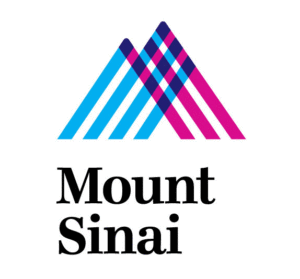
The Icahn School of Medicine at Mount Sinai (ISMMS) is a global leader that has an acclaimed faculty and is top-ranked by leading organizations in research funding, innovations, and diversity. ISMMS trains the physicians and scientists of tomorrow while conducting breakthrough research and providing multidisciplinary clinical care. The current student body comprises 540 postdoctoral fellows, 1339 (584 MD, 286 PhD and 95 MD-PhD) students with over 50% women and nearly 20% under-represented minorities. World renowned for groundbreaking medical and scientific inquiry, discovery, and development, ISMMS is home to a full spectrum of research laboratories, institutes, and centers across all disciplines. The School is made up of 39 multidisciplinary research, educational, and clinical Institutes and 34 academic departments and the current annual budget is $3.2bn with nearly 7000 faculty and staff. ISMMS investigators conduct basic, clinical, epidemiologic, and translational research, striving to rapidly transform scientific advances into improved patient care and outcomes.
The Global Health and Emerging Pathogens Institute (GHEPI) led by Dr. Adolfo Garcia-Sastre at ISMMS focuses on newly emerging and re-emerging infectious diseases that threaten world health. GHEPI brings together investigators from a number of different countries and disciplines in a program that spans basic discovery, animal models, human studies, and clinical trials, with the ultimate goal to develop novel approaches to therapy and vaccine development against infectious diseases. GHEPI members have an outstanding track record of collaborative research in the area of emerging pathogens with a number of multi-investigator NIH-funded projects that include, the Center for Research on Influenza Virus Pathogenesis and Transmission, the Dengue Human Immunology Project Consortium, FluOMICS, PRIME (Program for Research on Immune Modeling and Experimentation), and other program project grants. GHEPI also contributes by advancing a highly promising universal influenza virus vaccine by conducting preclinical and clinical studies sponsored by the Bill and Melinda Gates Foundation and Biomedical Advanced Research and Development Authority (BARDA). GHEPI’s strategic vision is composed of three parts: (1) Matching Investigators and Clinicians, (2) Identification of Needed Resources, and (3) Interdisciplinary training programs. GHEPI also hosts a weekly seminar series which brings together physician scientists, clinicians and basic research scientists from multiple departments across the Icahn School of Medicine at Mount Sinai campus.

The University of Puerto Rico, a predominantly Hispanic-Serving institution, is a public co-educational institution established in 1903 as Puerto Rico’s first institution of higher education. UPR is a multilevel system with UPRRío Piedras (UPRRP) as its flagship campus, being the oldest and largest, and generally recognized as the top rated center for higher education in Puerto Rico. UPR-Río Piedras has been accredited by the Middle States Association of Colleges and Universities since 1946 and is classified as a Doctorate Intensive Institution by the Carnegie Council. UPRRP grants the largest number of natural sciences doctorate degrees to Hispanics in the US. The College of Natural Sciences has four (4) student research training programs; University of Puerto Rico Louis Stokes Alliance for Minority Participation (NSF PR-LSAMP), and Neuro ID, Research Initiative for Scientific Enhancement (RISE) and the Minority Access in Research Careers Honorary Undergraduate Program (MARC) sponsored by the NIH. It is important to point out that the success rate of ex-trainees has been very high, the combined data for the MARC and RISE UPR-RP alumni who complete their PhD in biomedical related areas at mainland research institutions until the present showed a total of 202 PhD. Combined, PR-LSAMP and RISE provide research and professional training opportunities to over 40 graduate students in physical and biomedical sciences. The UPR researchers encompass the breadth of ongoing research relevant to forging the next generation of leaders in global health, including HIV and malaria. Several researchers are part of the AIDS and Infectious Diseases Laboratory and RCMI-Center for Molecular Genetics and Infectious Diseases Research at the UPR School of Medicine.

TMC was founded by the Sir Dorabji Tata Trust in the year 1941 and is presently an institute under the Dept. of Atomic Energy, Government of India. As one of the largest cancer centers in South Asia, Tata Memorial Center provides comprehensive cancer care as well as leadership for guiding the national policy and strategy for cancer care. TMC has a total of six hospitals across India and treats over 90,000 new cancer patients every year (Fig 8.). TMC promotes excellence through Evidence Based Practice of Oncology and has been instrumental in developing national guidelines for cancer screening and treatment. There is a strong emphasis on research which is affordable, innovative & relevant to the needs of the country. TMC has substantial research infrastructure encompassing the complete ambit from clinical research, to basic science research in oncology, to translational research and more recently the application of Artificial Intelligence in Health. TMC has a strong commitment to impart education in all spheres of cancer. For example, through CReDO (Collaboration for Research method Development in Oncology), we train oncologists and other healthcare personnel from India and several LMICs-especially Africa and South Asia.

IICB is engaged in research on diseases of national importance and biological problems of global interest. Employing sophisticated state-of-the-art technology, IICB among the few institutes in India house scientists from diverse scientific areas. The faculty include clinicians, bioinformaticians, structural and chemical biologists, medicinal chemists, natural product and organic chemists, supramolecular chemists as well as genetics, cell and molecular biologists and neurobiologists. Working collaboratively, scientists at IICB address scientific problems from multiple angles. IICB has world class Central Instrument Facility (CIF), which has spectroscopy facility, microscopy & imaging core facility, chromatography core facility, high computing facility, BSL2 facility and animal house facility. Moreover, IICB graduate students are amongst the highest ranked in the country.
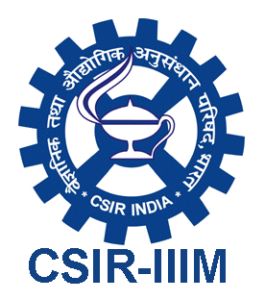
Set in the foothills of the Himalayan mountains, IIIM has unique access to the natural resources of varied climatic regions. The Institute has excellent chemistry and biology research and is a hub of novel drug discovery from natural products. IIIM focuses on creating enabling discovery ecosystem, partnerships and mechanisms by partnering with other R&D Institutes and Medical Centers. The institute houses all the critical ingredients for new drug discovery. IIIM is actively involved in the CSIR Skill Development Initiatives and is deeply committed to training future healthcare leaders.

IICT is a unique institution in the country with rich pool of scientists performing interdisciplinary research with state-of-the-art facilities including automated organics synthesis, Chemical Biology toolbox, Mass spectrometry, and NMR for structural Chemistry and Biology. The current emphasis is on drug discovery and development for global health issues including HIV, tuberculosis, cancers and neglected LMIC diseases. CSIR-IICT also provides cross-disciplinary training on Analytical Techniques, Pharmaceutical Biotechnology and unique waste to wealth generation frugal innovation.

True to its name, IGIB is a pioneer in Genomics based research. Significant milestones at IGIB include Indian Genome Variation Consortium, IndiGEN, GOMED, Genome India and SARS-CoV-2 genomic surveillance. This is enabled by diversity of NGS platforms and high-capacity data servers. In addition, IGIB studies HIV, TB, cancer, lung and skin disease with state-of-the-art genome-editing technologies such as CRISPR-Cas9. To facilitate mechanistic understanding, researchers at IGIB use model systems which include Zebrafish and iPSCs. The faculty also work on a range of pathogens and is a pioneer in sequencing and surveillance of SARS-CoV-2 in India. IGIB also conducts training workshops to enable future researchers and collaborates with international organizations to tackle global health challenges.
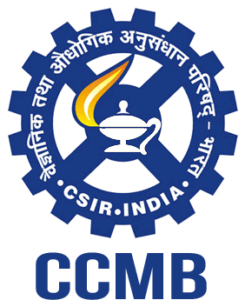
CCMB is one of the finest institutes in India that works on frontier areas of modern biology. The world class, state-of-art R&D facilities, the quality of research, the highly motivated and talented group of scientists, enthusiastic student community and the encouraging scientific environment bring a unique intellectual vibrancy to CCMB. The active research at CCMB has attracted several extramural research funding from national and international agencies and has established a collaborative research milieu. CCMB is deeply involved in a variety of outreach and training programs as a part of scientific social responsibility. CCMB strives in several ways to inspire the younger generation to engage in science as a career. PhD students and Postdoctoral fellows at CCMB thrive in an inspiring research environment complimented with a range of training programs. CCMB also offers several technical training programs for students, teachers, faculty, lab technicians, and industry personnel in order to reskill/ upskill them. Most of these hands-on-training sessions are interspersed with didactic technical lectures.
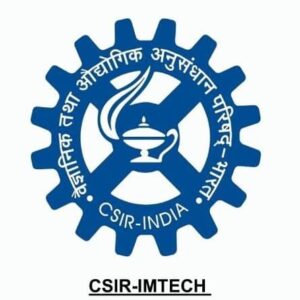
IMTech is a microbiology focused national laboratory. The institute works on multiple aspects of microbiology, including infectious diseases (especially TB), host-pathogen interactions, microbial genomics, microbiome, and using microbial cells as synthesis factories to produce clinically and industrially important biologicals. The institute has state-of-the-art facilities, including BSL-3 and BSL-2 laboratories, GMP facility for the production of clinically relevant biologics, high-resolution microscopy (both electron and light microscopy), next-generation sequencing core, X-ray crystallography, etc. IMTECH also has several ongoing national and international collaborative research programs.

CDRI, a premier drug research institute of India was launched in 1951 by the then Prime Minister of India Pt. Nehru with a vision to strengthen and advance the field of drug research and development in the country. The Institute has made significant accomplishments in the pursuit of its mission to develop New Drugs & Technologies for affordable healthcare for all, generation of knowledge base and nurturing future leaders for healthcare sector. Today, it has become a unique model for modernized drug research in India – with everything under one roof, from synthesis of generic as well as rationalized target-based compounds, screening, development studies, process up-scaling to clinical studies. Unique achievements of the Institute include discovery and development of 12 new drugs, of which, Arteether (Brand Name: E-mal), BESEB (Brand Name: Memory Sure), Centchroman (Brand Name: Saheli) are currently in market; transferred more than 130 indigenous technologies to the pharmaceutical companies, a significant contribution in the metamorphosis of the Indian Pharma Industry. So far, more than 10,000 research articles have been published by the Institute in peer reviewed journals. Obtained more than 350 Indian patents and 90 international patents; and produced more than 1000 Ph.Ds. Several of its Alumni have occupied highest positions in national and international academic institutions, biotech and pharma industries.